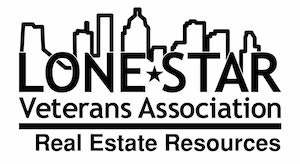Moving to a new city, neighborhood, or home can be an exciting adventure, but moving requires so much work that it can overwhelm almost anyone. While moving can be a daunting task, staying organized can ease much of the stress involved. We recommend to have a checklist below will help you get a head start and avoid last minute panic.
Research your options.
If you don’t have a new apartment or house picked out, begin researching your options. If you’re moving to a new city, research neighborhoods where you’d like to live. Make a list of your priorities: is it important to live near your work? Do you want convenient public transportation? Is it important to be close to friends or family? Do you have pets? How much square footage do you need or what amenities are most important? See our earlier blog entry on the subject for more considerations.
Work with a leasing agent or realtor.
Consider working with a real estate agent. We have worked with many people to find the perfect home or apartment to fit their needs. We know what opportunities are available and which neighborhoods and apartments can best fit your lifestyle. We can help you tour apartment complexes to get a sense of the community, amenities, and neighborhoods.
Sign a lease to reserve your new apartment.
Even if you aren’t moving for a few months, most properties are happy to do this well in advance to help reserve your new apartment. You can, of course, do this days before your move-in date, but your options will likely be more limited and your stress level will be much higher.
Find reputable movers.
Do you plan to rent a truck or and do the heavy lifting (literally) yourself, or are you going to hire movers? Using a reputable moving company or you might consider a pick and pack fulfillment services is well worth the cost and will save you a lot of time and stress.
If you are going to go with professional moving companies, do your research and choose a company in advance. Look into each company’s reputation carefully. We can provide you with the names of reputable companies in the area. Ask for written estimates for the total moving costs.
Plan your move-out.
Look at your lease agreement with your current landlord or management company to verify your move-out procedure, including length of notice required, getting your deposit back, etc. Although your lease probably specifies that your apartment be cleaned thoroughly (by you) prior to your departure, double check with your property owner or landlord before you see the moving team.
According to research is preferred by US citizens. Sometimes they may plan to renovate or redecorate the apartment once you vacate, and knowing this could save you some time. (No point scrubbing scuff marks off a wall if it’s going to be repainted.) Plan your timeline accordingly—deep-cleaning an empty apartment can take a surprising amount of time.
Transfer your utilities.
If utilities at your current address are in your name, call to discontinue your electricity, gas, water, internet/cable/phone, etc. effective after you move out. Make sure to coordinate this with your landlord/management company as they will need to have to have the utilities transferred to their name.
Plan ahead to have utilities at your new address transferred to your name upon your arrival—coordinate with your future landlord or leasing company to ensure there’s no gap in service.
Update your mailing address.
Complete a change-of-address form with your post office or at usps.com. The system isn’t perfect, so be sure to let your landlord or leasing office know where to forward any mail that shows up after you depart.
Be sure to alert companies you do business with of your coming move. This includes your employer’s human resources department, banks and financial institutions, insurance providers, mobile phone providers, etc. It’s a good idea to keep track of your mail for a couple of months and note any companies that you do business with. But remember that even though some companies may only send you electronic communications or statements, they will still need to know your new address.

